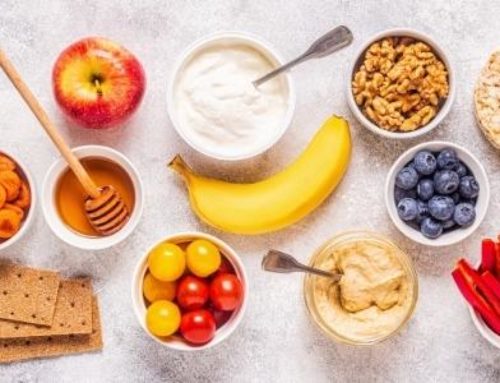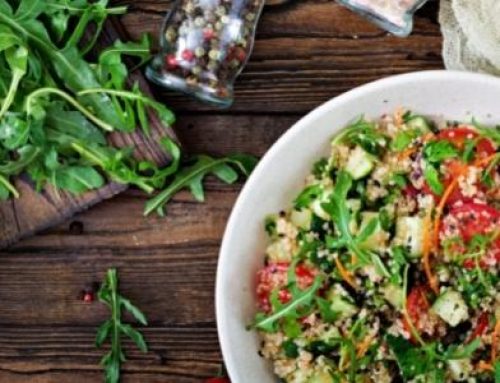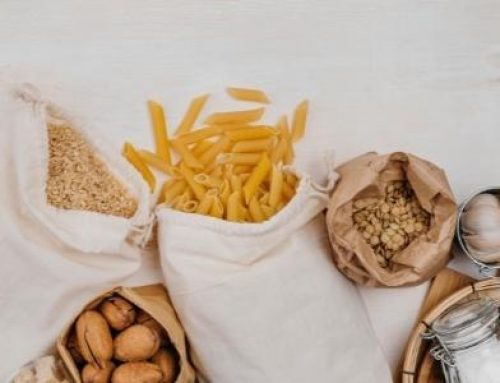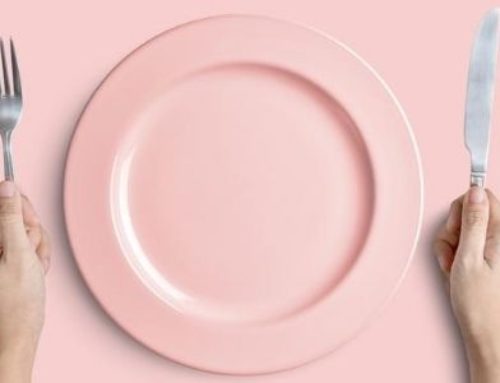I don’t believe in ‘rules’ for healthy eating.
Nor do I like the idea that food is labeled as ‘good’ or ‘bad’ for you. Food is food and some foods are just more helpful in promoting good, lifelong health than others.
In saying that, I have to admit that there is one ‘rule’ that I think sums up good nutrition and is the best overall guideline to help you shape a well-rounded, balanced and health promoting diet that’s both enjoyable and nutritious.
The rule is this:
Choose foods with high nutrient density whenever possible.
What is nutrient density?
Nutrient density is a term used to describe a food’s nutrient composition relative to the amount of energy it contains. A food with high nutrient density contains a high amount of micronutrients (vitamins, minerals, antioxidants etc) relative to the energy it contains. Poor nutrient density is a food that has little or very small amounts of micronutrients relative to the energy it contains.
The best way to explain nutrient density is to compare different types of foods. An apple and a 250ml glass of coke contain the same amount of energy, about 400-500 kJ (100-120 calories), and most of that energy, for both foods, comes from some form of sugar. This, however, is where the similarities end. An apple has a much higher nutrient density because it also contains about 4-5g of fibre, vitamin C, folate, and other antioxidants and micronutrients that are vital for our bodies to function. Coke is nothing more than sugar and water, containing very little nutrients and thus has very poor nutrient density.
Why is it important?
Your body needs energy to function and move and this energy comes from the breakdown of food (carbohydrates, protein and fat). In order to maintain a healthy weight the right energy balance is really important. In our current society there is an abundance of energy. So much so that more than half of the population in Australia is either overweight or obese. This abundance of energy is due to over consumption of poor nutrient density foods. In other words, we’re consuming a large amount of energy but very little nutrition.
In our sedentary (low activity) lifestyles its more important than ever to regulate our energy intake. However, moderating your energy intake whilst neglecting nutrient density will end up being rather detrimental for your overall health and well-being, putting you at risk of nutrient deficiencies.
Like the illustration above with the apple and the glass of coke, although both contribute the same amount of energy to your day, the apple contains health promoting properties that coke will never provide and will always be the better choice.
When it comes to weight loss and weight maintenance you must consider both your energy intake and the nutrient density of your foods. Calorie counting whilst neglecting the nutrient composition of your food choices may result in weight loss, but you end up compromising your overall health for the sake of a smaller dress size.
By choosing nutrient dense foods as often as you can, you ensure that you’re providing your body with all the vitamins, minerals, antioxidants, fibre and other nutrients that it needs and while keeping your energy intake in check at the same time.
Nutrient Dense Foods
- Fruits and Vegetables – Without a doubt, fruit and vegetables are the cornerstone of a healthy diet and have the highest nutrient density of all the food groups. This is because they contain relatively large amounts of micronutrients, yet very small amounts of energy. A capsicum, for example, contains roughly three times your daily vitamin C requirement yet only provides 100-150kJ (35 calories) of energy. Fruits and vegetables are also a fantastic source of dietary fibre which has been shown to be an important component of healthy weight loss and weight maintenance. Not to mention vital for good digestive and bowel health.

- Legumes and Wholegrains – beans, chick peas, lentils and whole grains such as oats, quinoa, wheat, rice and corn also have good nutrient density. Legumes are naturally low in fat and energy yet contain high amount of dietary fibre, protein, B group vitamins, iron, calcium, phosphorous, zinc and magnesium. Wholegrains are also a great source of fibre and protein as well as provide manganese, iron, magnesium, phosphorus, selenium and B group vitamins. When it comes to whole grains, it’s very important that you understand the different between ‘wholegrain’ and refined grains. Highly refined grains include white bread, pasta and couscous, white rice and quick oats. Foods such as biscuits, cakes, pastries, crackers, bagels, muffins and other baked goods are highly processed grains that have lots of energy but have lost nutrition due to the high level of processing. They are OK in small amounts occasionally but due to their poor nutrient density they are not helpful when eaten regularly. They contribute large amounts of energy but very little nutrition.

- Nuts and Seeds – Shied away from, due to their relatively high fat content, raw nuts and seeds actually have good nutrient density and are an important component of a healthy, balanced diet. Nuts are packed full of nutrients and although they contain fat, they are a great source of the healthy unsaturated fats and some nuts are a really great source of essential omega 3s. Rather than list all the nutrients here, check out Nuts for Life for the low down on how good nuts really are. The same goes for seeds. Think sesame, pumpkin, linseed, chia and sunflower. They contain vitamins, minerals, antioxidants, fibre and healthy fats.

- Milk & yoghurt – Good nutrient density isn’t just reserved for the plant based foods. Dairy, particularly low fat milk and natural yoghurt, is a great source of nutrition without the excessive amounts of energy. Dairy is the best source of calcium and also provides protein, vitamin B12, potassium, magnesium, zinc and vitamin A. Dairy products such as cheese and cream, only uses part of the whole milk (with a higher concentration of fat) and thus doesn’t have as good a nutrition profile as whole milk or yoghurt.

- Lean meats – lean red meat is one of the best sources of iron, not to mention a great source of vitamin B12, zinc and protein. The best meat choices are the ‘premium’ or ‘lean’ varieties and always remove any visible fat before cooking. The less fat, the less energy the meat contains, making it more nutrient dense. Fresh is always best, so processed, cured, smoked and other deli type meats are best eaten only on occasions.

- Fish – Fish and seafood are a fantastic source of lean protein and if you are choosing the higher fat varieties of fish such as salmon and tuna, the fat that it contains is high in omega 3 which is essential to our bodies. You’ll also get B vitamins, specifically B6 and B12, vitamin A and minerals such as iron, zinc, potassium and magnesium. In fish where you eat the bones such as salmon, you’ll also get calcium as well.
Following this guideline will ensure healthy choices every time because nutrient dense foods:
- are generally minimally processed, containing less additives
- help you manage your energy intake, and not consume excess kilojoules
- are naturally low in saturated fat, salt and added sugars
- are usually a great source of fibre (plant based foods only) and will help with feeling satisfied after a meal, controlling your appetite, maintaining digestive health, reducing cholesterol levels and stabilising your blood glucose levels
The great thing about this ‘rule’ is that it encourages balance. Sometimes it’s nice to enjoy a piece of cake, a handful of chips or a row of chocolate. These foods are not described as being nutrient dense, but when your diet is characterised by nutrient dense foods and thats the majority of what you eat, you can happily enjoy your favourite treats knowing that your body has all the nutrition it needs.
You only live once so don’t forget to enjoy the things you love. However, you only live once so get the best out of your body, it’s the only one you’ve got.
If you’d like further help with your nutrition please click below:






